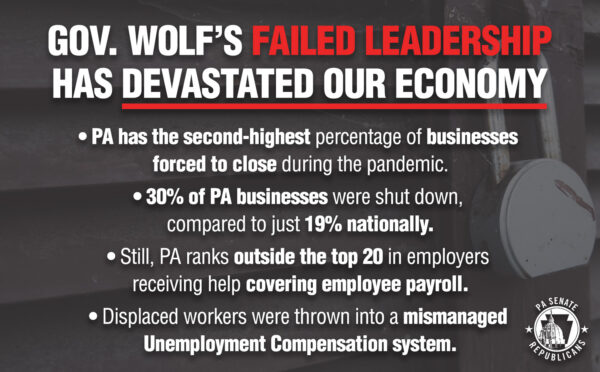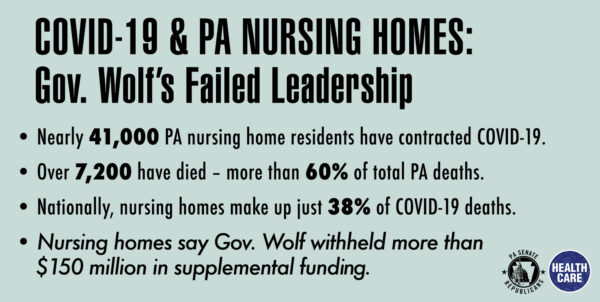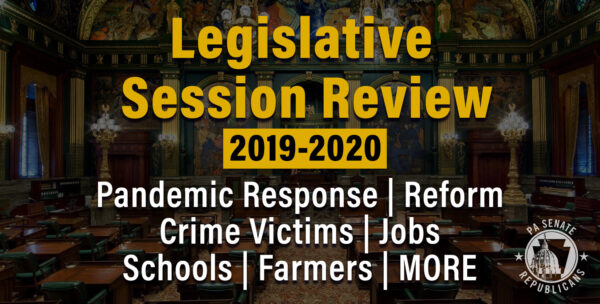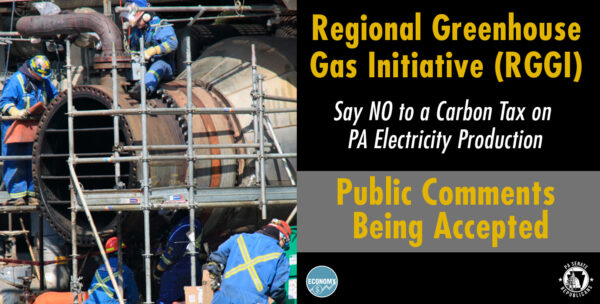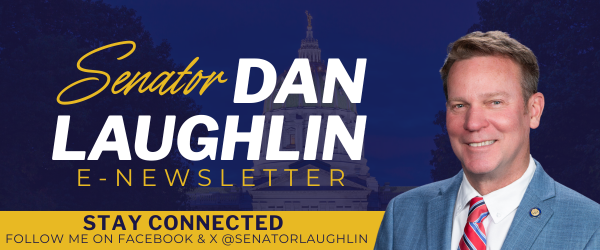
|
||
|
In This Update:
New Statistics Detail Economic Devastation of Governor Wolf’s Shutdown Orders
Pennsylvania had some of the most severe restrictions on businesses in the country during the COVID-19 pandemic, including closing many industries that were operating safely in other states. The U.S. Bureau of Labor Statistics recently issued a report detailing the extent of the damage to each state’s economy. Some of the highlights of the report include:
The more severe restrictions did not result in a corresponding boost to public health. The statistics show that Pennsylvania needs to change the way we respond to emergencies to embrace a collaborative approach – not vesting all of the decision-making power in a single individual. The General Assembly approved a proposed constitutional amendment earlier this year that would limit the length of future emergency declarations and require legislative approval of the extension of any emergency declaration longer than 21 days. The bill is expected to be a priority for lawmakers in the upcoming legislative session, which begins next month. Lawmakers Call on Wolf to Better Protect Nursing Home Residents
Pennsylvania’s COVID-19 mortality rate among nursing home and long-term care residents is among the worst in the nation. Six of the top 10 nursing homes with the most COVID-19 deaths nationally are located in Pennsylvania, according to the New York Times. In addition, representatives of the nursing home industry sued the Commonwealth, saying that the state illegally withheld $150 million in federal funding. The Department of Health issued guidance in March as part of its pandemic response that mandated that patients who tested positive for COVID-19 be returned to their long-term care facilities regardless of the provider’s ability to care for the patient and meet infection prevention mandates. The Department also is in the process of modifying its overall regulations for the industry – a process that began before the onset of COVID-19. Lawmakers called on the Wolf Administration this week to work in collaboration with long-term care providers and the General Assembly to ensure any new regulations keep the promise to care for our most vulnerable state residents and avoid repeating the Administration’s mistakes during the pandemic. 2019-20 Legislative Session in Review
The two-year legislative session that ended November 30 was highlighted by measures to help Pennsylvania respond to COVID-19, including providing resources to the individuals and organizations who were deeply affected by the virus – hospitals, long-term care providers, community services providers, first responders, food banks, and affected employers and employees. Lawmakers also fought back in cases in which Governor Wolf’s mitigation efforts exceeded his authority and infringed on the civil liberties of Pennsylvanians. In addition to responding to COVID-19, the General Assembly passed new laws to reform state government, improve public safety, support education at all levels, protect first responders and address Pennsylvania’s opioid epidemic. A complete list of bills approved during the 2019-20 Legislative Session is available here. Public Comment Period on RGGI Opens – Say NO to Carbon Tax
The Wolf Administration is moving forward with its plan for Pennsylvania to join the Regional Greenhouse Gas Initiative (RGGI). Joining this consortium would impose a carbon tax on electricity production, raising energy bills for consumers and making the state’s energy industry less competitive with neighboring states. Part of the process of joining RGGI includes a public comment period, which is open now through January 14. I encourage community residents to click the link below and let your voice be heard in support of Pennsylvania energy production – and against new taxes. To submit comments, click on the following link and select Proposed Rulemaking: CO2 Budget Trading Program (#7-559): https://www.ahs.dep.pa.gov/eComment/. Applications Available Now for Fire, EMS Grants
Fire companies, EMS organizations and rescue squads can apply now for funding through the Fire Company and Emergency Medical Service Grant Program. The program helps eligible organizations fund facility renovations and/or construction, equipment purchases, debt reduction and training. Funding can also be used to supplement operational expenses due to revenue losses suffered during the COVID-19 pandemic. Grant applications must be submitted to the Office of the State Fire Commissioner by January 25. Winter Weather Driving Tips and Information
Pennsylvanians are no strangers to driving in inclement weather, but a reminder of some useful tips is always helpful. PennDOT offers tips on winter driving as well as a Winter Driving Guide to help all motorists avoid dangers on our roadways. If you must drive, you can also check weather alerts and traffic conditions by using the 511PA information system. Virtual Sessions Available to Support Older Pennsylvanians
Social isolation is one of the biggest threats to the physical and mental health of older Pennsylvanians. The Pennsylvania Council on Aging is offering a series of free virtual sessions to prevent social isolation and help Pennsylvania seniors focus on health issues. To RSVP for an upcoming Strengthening Older Lives Online seminar, click here. Seniors can also access the information through a self-guided tour. |
||
|
||



Want to change how you receive these emails? 2025 © Senate of Pennsylvania | https://www.senatorlaughlin.com | Privacy Policy |
